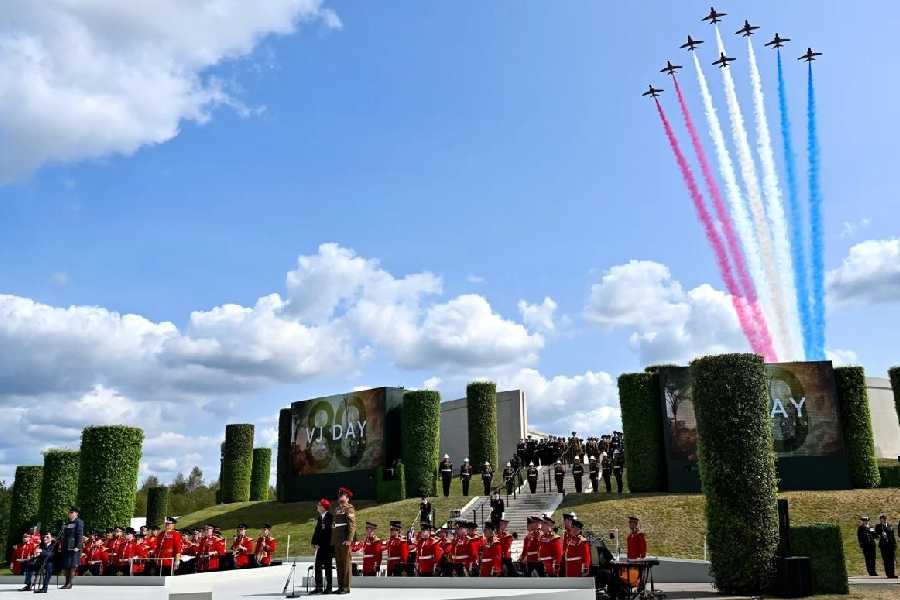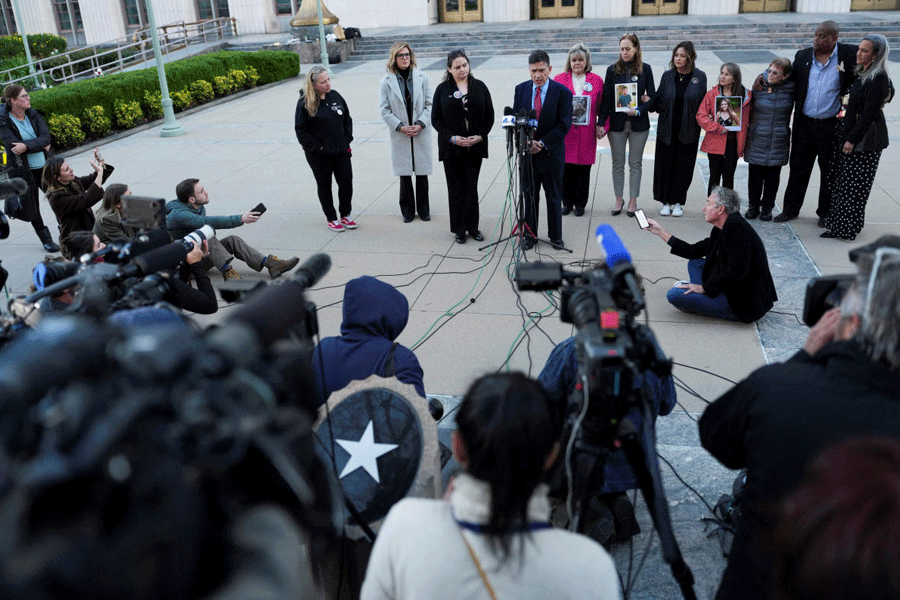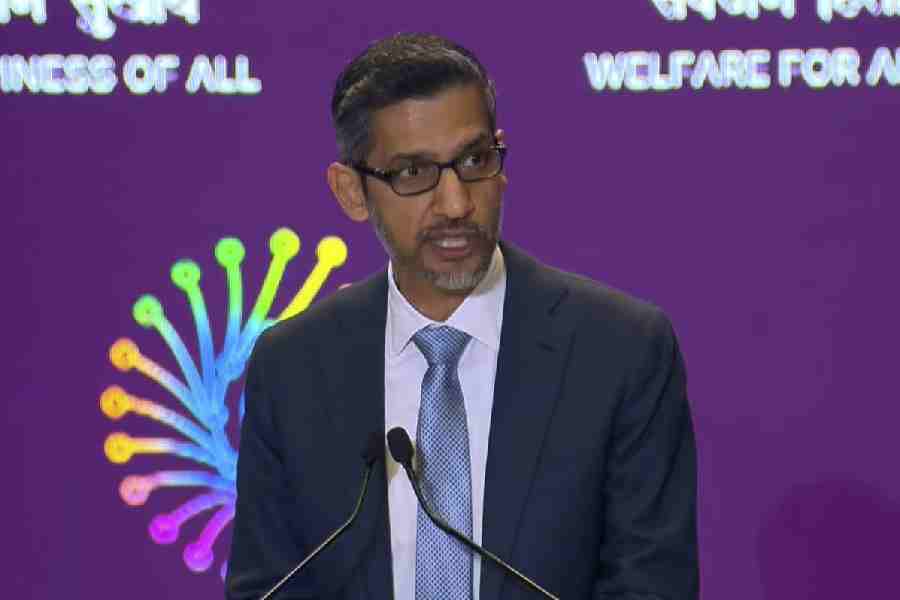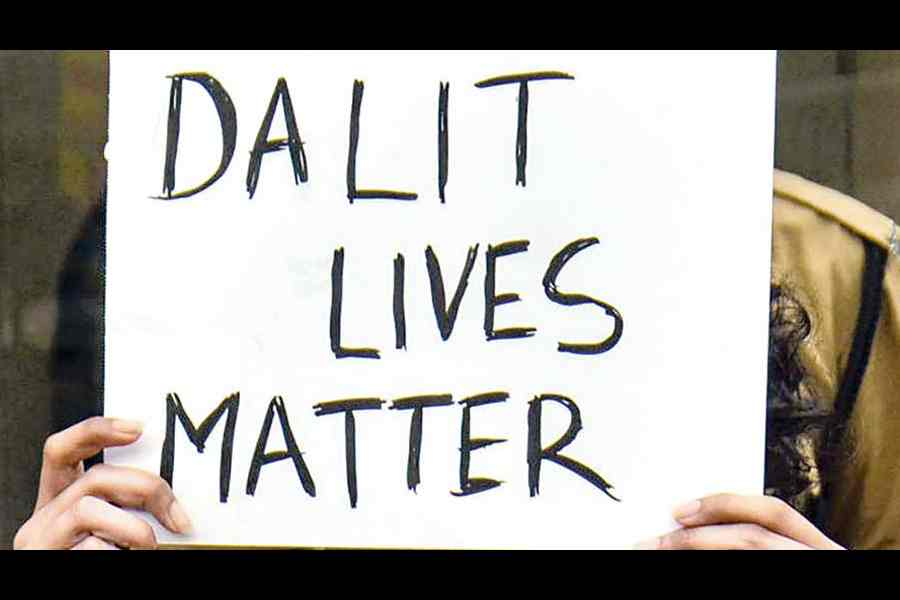An ancient voice quavered across the National Memorial Arboretum in England’s Staffordshire, “When you go home, tell them of us and say, for your tomorrow, we gave our today.” Reciting from memory, Owen Filer, 105, who had served in Bombay during the Second World War, transported me to that famous tennis court where my cousin, a long dead deputy commissioner of Kohima, had pointed out where the Japanese offensive was repulsed in 1944.
Decked out for the 80th anniversary of VJ Day on August 15, the Arboretum’s pomp and pageantry could have been a dress rehearsal for Donald Trump’s State visit. The skirl of pipes, tramping boots, and the haunting echo of the Last Post didn’t proclaim Emperor Hirohito’s quaint "the war situation has developed not necessarily to Japan's advantage" so much as his sombre reminder that continued hostilities would not only “result in an ultimate collapse and obliteration” of Japan “but also lead to the total extinction of human civilization.” That warning applies to Ukraine, Gaza, wherever the even tenor of civilian life is threatened.
Such episodes keep the past alive. There’s talk now of an engulfing tide of superstition and bigotry that bears out the claim by a perceptive English writer, James Cameron, that “Hinduism is flesh of India’s flesh and bone of her bone.” Another perceptive British journalist, The Observer’s Cyril Dunn, noted that although India is the world’s most populous nation, it’s easy to forget what a village the immensity of the country really is. He wasn’t complaining about non-existent modern facilities. He meant the abundance of familial linkages that reduce global events to intimate, personal experiences.
The recycling, renaming and repackaging are often under a deceptively innocuous label like ranna puja or arandhan (no cooking), which has the additional virtue of giving women of the household a day’s respite from the kitchen. Arandhan is a supposedly Bengali festival celebrated the day before Vishwakarma Puja and dedicated to Manasa, the snake goddess, although no one I know had heard of it until recently when our driver suddenly announced it was of such crucial religious and cultural significance that faith and identity would wither unless a three-and-a-half day celebration on full pay was sanctioned.
Such occasions can easily be invented. The gods are always ready to be propitiated, religion being a stridently growth industry with increasing fanfare accompanying innovations. As the Arboretum function demonstrated, the British are especially good at orgies of remembrance. What is called the Kohima Epitaph was composed at least 27 years before the actual battle of Kohima when the India-born son of a forest officer crashed his biplane ('the Spitfire of World War One') in the small Wiltshire town of Upavon whose aviation school still advertises assorted Air India uniforms and cabin bags (with shoe pockets) for sale.
They are a reminder that Commonwealth troops in the two wars were “the most diverse fighting force in history”. As the Nigerian-born writer, Sir Ben Okri, intoned, “To fight the white man’s war, they did not know they were fighting to save the whole wide world.” Field-Marshal Sir Claude Auchinleck, British India’s Commander-in-Chief, admitted that the British “couldn't have come through both World War I and II if they hadn't had the Indian Army". While more than 1.3 million Indian soldiers served in the First War, the Second War produced history’s largest, all-volunteer force, numbering 2.5 million at its peak. Leaving aside the contentious figure for collateral damage, the evidence also indicates that with the largest number of war widows in the world, India must be unique in not boasting an explicitly sanctified national war memorial.
Captain Yavar Abbas, 104, of the 11th Sikh Regiment, apologised for “going off-script” to thank King Charles III for attending the service despite his cancer treatment, something that Abbas, too, had endured. Meanwhile, Jasdeep Singh Degun played Raga Ahiri on the sitar and the Kenya-born ethnic Gujarati, Nitin Ganatra, read out the recollections of another Indian Army centenarian, Colonel Mohammad Ghani Rashdi, “My prayers were the only thing that kept me going. I used to pray every day to leave. Everyone did. We all prayed to a different God, but we all prayed for the same thing: freedom.”
In one sense, it was all very personal: three of my Calcutta colleagues had slaved on different segments of the tragically fateful Death Railway whose remains my son and I visited in Kanchanaburi, Thailand. Evan Charlton shrugged off the memory. Lindsay Emmerson had to flee from a screening of The Bridge on the River Kwai (his wife told me that he was subsequently tormented by nightmares) and Philip Crosland broke down recounting a manoeuvre across a bridgehead in Borneo to escape their Japanese captors. “That was the only time I ever witnessed any emotion from Philip,” said his daughter with whom we were having lunch.
Philip demanded a meeting with Colonel Tatsuji Suga, commandant of prisoner of war camps, who told him that the fate of Allied troops was none of his business as they were now soldiers of Imperial Japan. The climax came on September 16, a week before Suga’s 60th birthday in 1945, when he took his own life in the best Shinto tradition.
Soon afterwards, India declined Clement Attlee’s offer of responsibility for defending Singapore as part of the price for independence. British strategists probably reasoned that if Rajendra Chola could cross the seas in the 11th century to attack the Sri Vijaya kingdom in Sumatra, establish dominion over Malaya, and build substantial trading links in China, some ambitious Southeast Asian potentate, or an outside power with a foothold in the region, could repeat the adventure in reverse. They wanted no change in the three pivots — to hold India, to hold the sea lanes to India and the conviction that god was an Englishman — that made the Indian Ocean a “British lake”.
While historians claim that Hiroshima and Nagasaki spared India the horrors of Japanese colonialism, as described by Abbas, Rashdi and others, the childhood warnings in my family were all against replacing a dying imperium with a rising one. Indians were not alone in rejoicing over that. Yoshi Sekiba, the son of a Japanese military doctor, travelled to the United Kingdom to attend the Arboretum ceremony and mourn the British dead. Abbas was at the siege of Imphal and the battle of Kohima when Japan’s aim of cutting off the Allied supply line to China was foiled.
Rashdi knew that fighting for the British meant fighting a war in the name of freedom while Indians were not free but, like many Indian nationalists, he did not want Nazism and fascism to prevail. The 14th Army’s objective was to win back lost territory but Abbas can’t forget the aftermath of the battles. "It was a horrible sight, Japanese with swords sticking out of their bodies, instead of falling into enemy hands." The Gurkha beside him was hit in the temple by a Japanese bullet meant for his camera and killed. The camera shattered. "I'm lucky to be alive," he says. But reflects, “We didn't achieve anything really.”
On VE Day, May 8, 1945 — when the war ended in Europe — he was in Rangoon filming Burma’s recently re-taken capital. Little had changed. The war against Japan was continuing but then, unexpectedly, Hiroshima and Nagasaki changed everything. The wasteland that was Hiroshima and people with horrible injuries still haunt him. Witness to the bloody aftermath of Partition, and heartbroken at the decision to divide India, he moved to Britain two years later.
VJ Day is not a day Abbas celebrates. His message, from one of the last survivors of World War II, is clear. "War is a crime. It must be banned. It's mad.” As Trump recalled at Chequers, innocent babies were chopped into eternity. But nothing was achieved really for either winner or loser.










